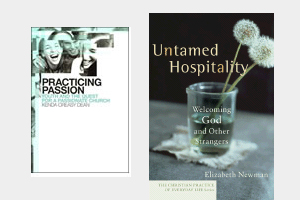Many of us have followed the work being done at the University of North Carolina at Chapel Hill on the religious beliefs of American teens. “Moralistic therapeutic deism†now rolls off our tongues with growing ease, though it does nothing to ease our minds about the future of the church. I heard the Rev. Rhonda VanDyke Colby do a highly effective job of interpreting the research to a group of pastoral counselors, social workers and medical personnel recently. As I listened I heard voices from the past. This is something that often happens to those of us who have more past than others. I knew that I had heard similar critiques of current beliefs. Where and when?
First, I thought of Robert Bellah, who is credited with coining the term “civil religion†in a 1967 essay, but the roots of that term include, among others, the work of H. Richard Niebuhr, Ernst Troeltsch, and Max Weber. Also included was Jewish social philosopher and sociologist of religion Will Herberg who used the term in the late fifties. Herberg railed against “secularist thinkers†who systematically disengaged what he understood to be the “moral principles of western civilization†from their scriptural foundations in order to live “a life of their own†based on humanistic ethics. The result, he lamented, was what he called a “cut flower culture.â€Â Cut flowers keep their original beauty and fragrance but, lacking roots, they wither and die. “Without the life-giving power of the faith out of which they have sprung,†Herberg wrote, “they possess neither meaning nor vitality.â€
Civil religion is not moralistic therapeutic deism, but Bellah’s work continued and, with others, gave us the 1988 book, Habits of the Heart, introducing us to “Sheilaism.â€Â Sheila abhorred strong statements of faith, seeing them as fanaticism. She couldn’t remember the last time she went to church, but her faith (“just my own little voiceâ€) has carried her a long way: “It’s just try to love yourself and be gentle with yourself. You know, I guess, take care of each other. I think God would want us to take care of each other.â€

It isn’t much of a stretch to see today’s teens, to the extent that their faith can be described as moralistic therapeutic deism, must surely be Sheila’s unsurprising offspring. Two suggested antidotes for moralistic therapeutic deism: Elizabeth Newman’s Untamed Hospitality: Welcoming God and Other Strangers and Kenda Creasy Dean’s Practicing Passion: Youth and the Quest for A Passionate Church.


1 Response to Cut Flowers, Sheilaism, and Other Unsurprising Offspring